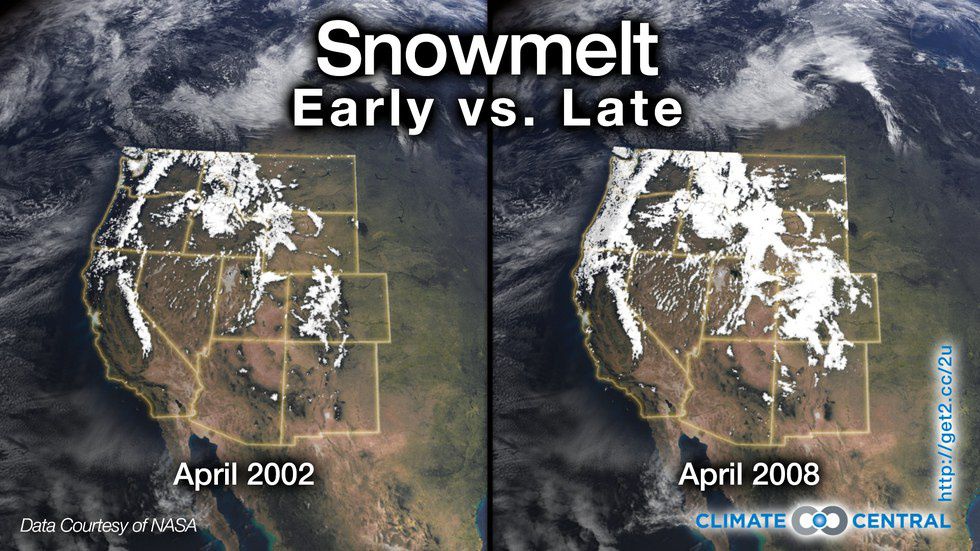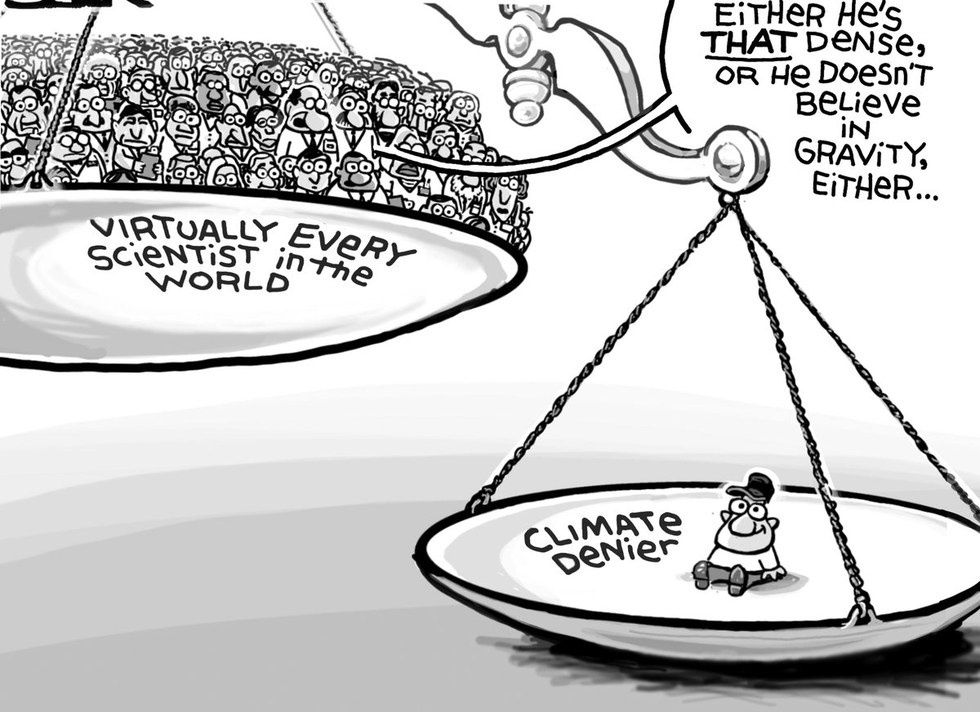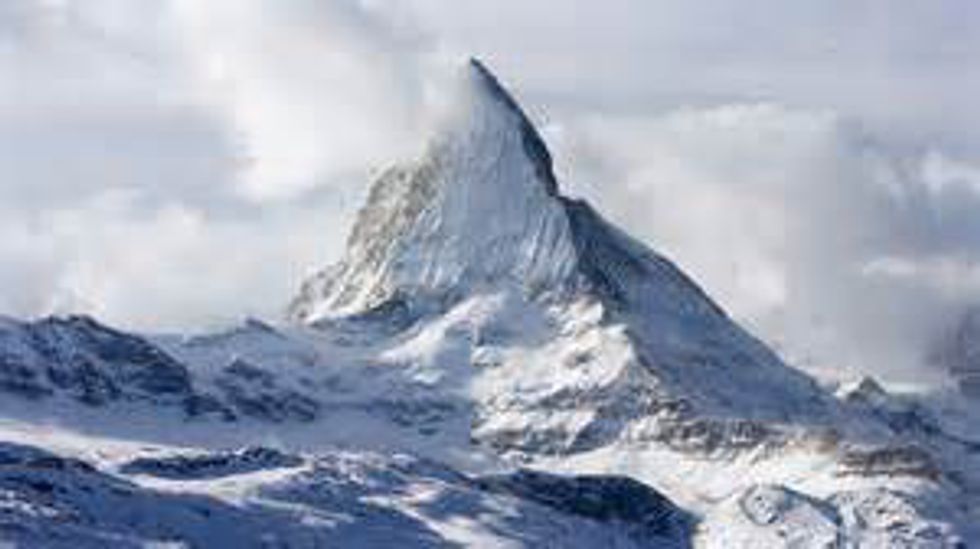We just had a huge snowstorm last week. Climate Change; am I right?
Yes, Climate Change is exactly right.
Just because it snows, that does not deny the existence of climate change. Actually, the increased heat will cause more intense storms due to the ability to evaporate more. So when the snow does fall, it will be more intense. This graphs displays how Winter precipitation in the Northeast USA has changed from 1930- a little past 2010. Within the last decade, there was a 50% increase in precipitation compared to normal.
In fact, those above the 45 degree latitude line are expected to see a massive increase in precipitation and therefore a massive increase in plant life. Even though studies predict that plants will migrate (over several population events) with their optimal temperature, most are actually migrating with precipitation. While on the other hand, animals are moving with optimal temperature. (http://science.sciencemag.org/content/322/5899/261)
As the snow melts, plants are following it downhill where as mammals cannot stand the heat. Ecosystems cannot survive with all of these organisms living in isolation from each other. They need to live together in order to fulfill ecosystem services.
Climate Change is not the eradication of winter, it is the lengthening of the warmer seasons. "Climate warming can reduce snowfall, and cause earlier spring melts and shorter snow cover seasons. For instance, warmer air in Alaska has caused the snow to melt earlier each spring, lengthening the snow-free summer season." If there is less snow fall overall, and longer snowmelt periods the amount of snow cover will decrease overtime. It is predicted to have drastic declines over Europe and Asia.
Now why is snow such a big deal? Well from an anthropocentric standpoint, a lack of snow pick is related to a decrease in water supplies in the spring. Snow melts in one area, makes it way to lower elevations to fill brooks, creeks, streams, etc. It essentially helps fuel water supply for entire ecosystems and helps us sustain our water tables/sources.(http://extension.psu.edu/natural-resources/water/n...)























